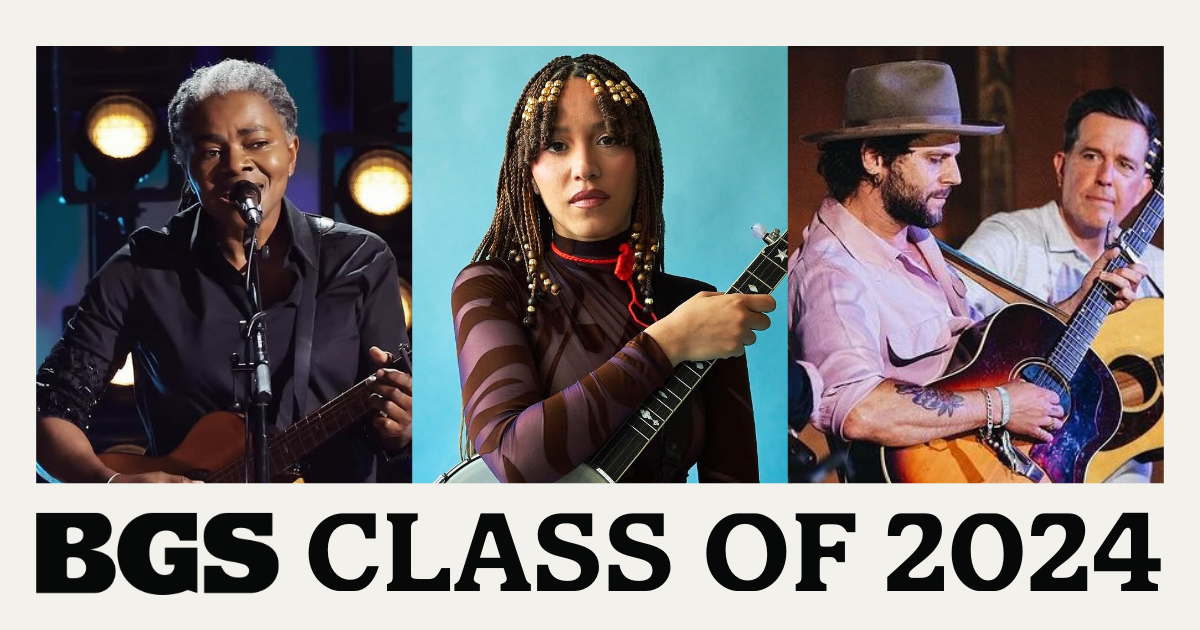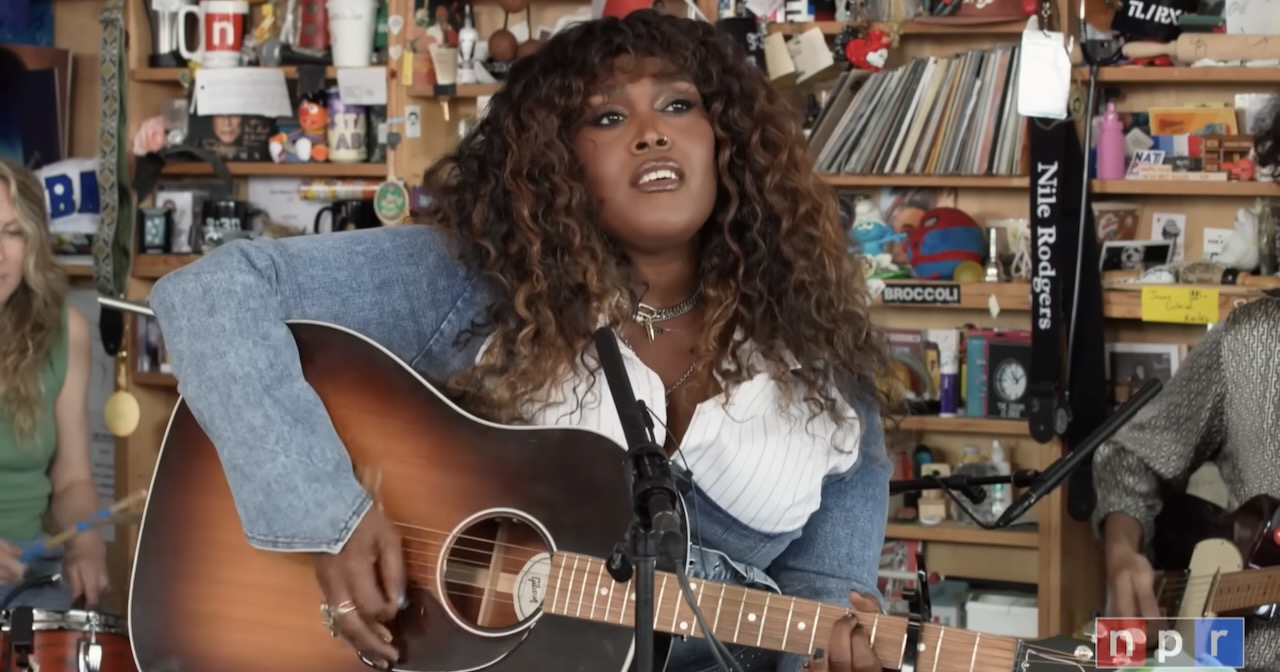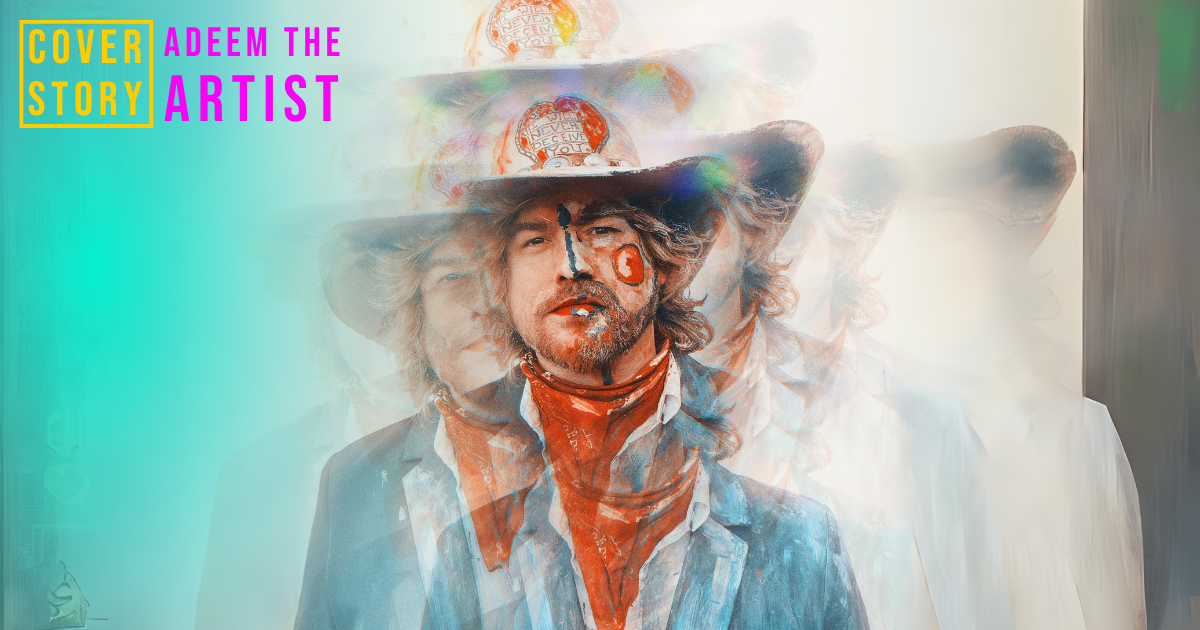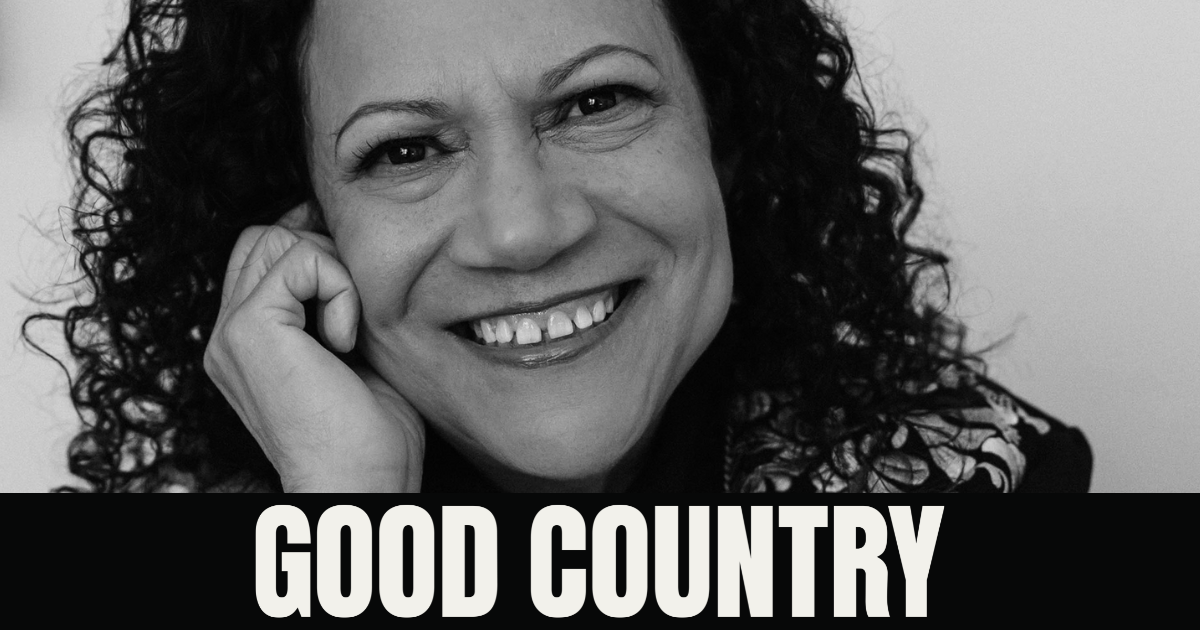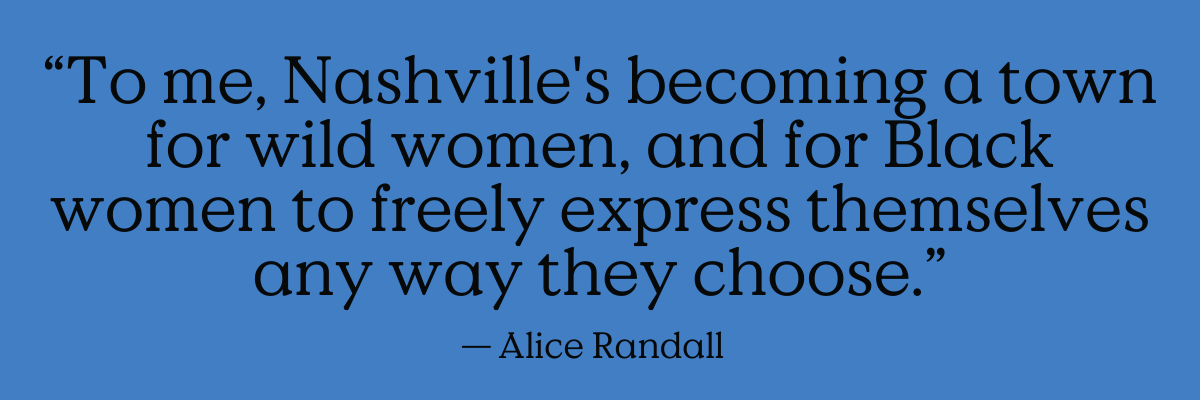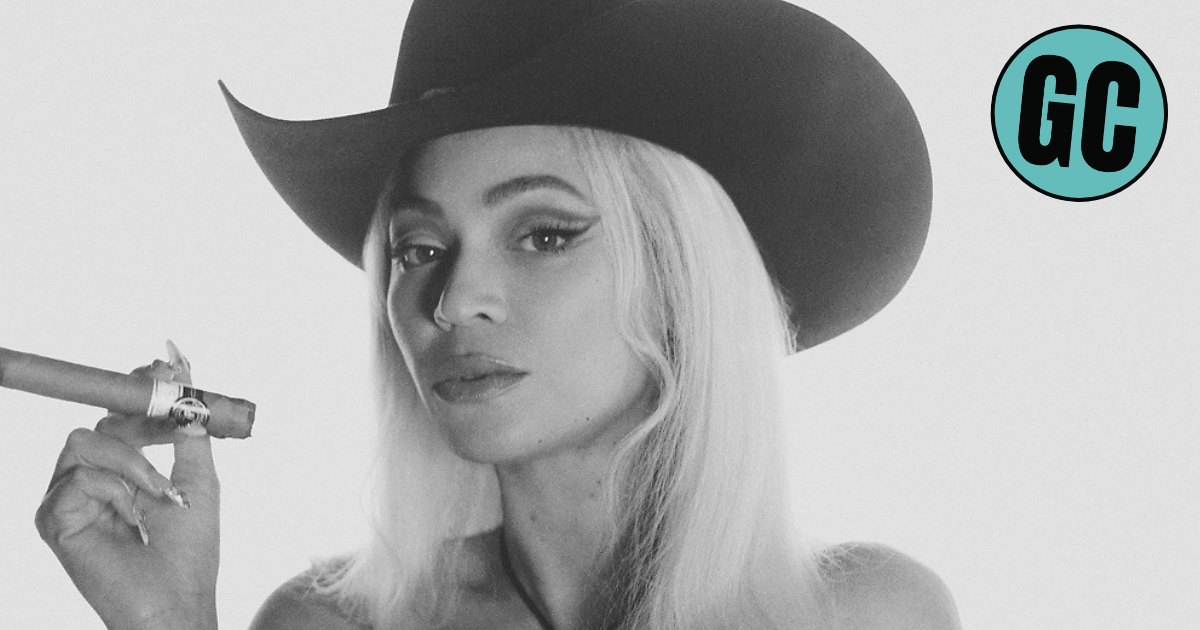Music is all about moments. It’s a fact we tend to lose sight of, forest for the trees, despite the fact that music can only exist in this, the present moment. Each pluck of a string, each breath of a voice, each lick, hook, and improvisation – no matter how practiced or free – is but a mere moment.
As we all rewind the calendar year to relive the last twelve months and all of the turmoils and triumphs they held, we asked our BGS contributors to reflect on which musical moments they experienced this year that were most memorable, most moving, and most transportive. Which musical moment would you return to, if you could? Which musical moment returns to you, again and again and again?
Our year-end lists are not intended to center on superlatives or “bests;” we don’t so much care about what “should” or “shouldn’t” land in one of these collections. Curation of this sort is never truly objective, so why pretend it is? Instead, we hope our writers and our readers will be able to demonstrate and appreciate that music is never about measuring or comparison, metrics or accomplishments, accolades or awards. Music is about moments – and about wholly inhabiting those moments, together.
Below, our first-rate writers, thinkers, and contributors share the musical moments from 2024 that impacted them most. From Beyoncé galloping through our hearts with Cowboy Carter to intimate, people-first festivals like Laurel Cove Music Festival in Kentucky. There’s also music from harlequin creators like American Patchwork Quartet, Kaia Kater, and Rhiannon Giddens alongside memories of the late Dexter Romweber and the strength of mutual aid and community solidarity in Western North Carolina post-Hurricane Helene.
2024 held so many intricate, ineffable, one-of-a-kind moments, good, bad, ugly, and gorgeous. We hope you’ll take a second to recall your own most memorable musical moments of the year while we share ours – and while we all look forward to many more in the year to come.
August 20, 2024 – Chris Acker and Dylan Earl at Folk i Storgata, Oslo, Norway
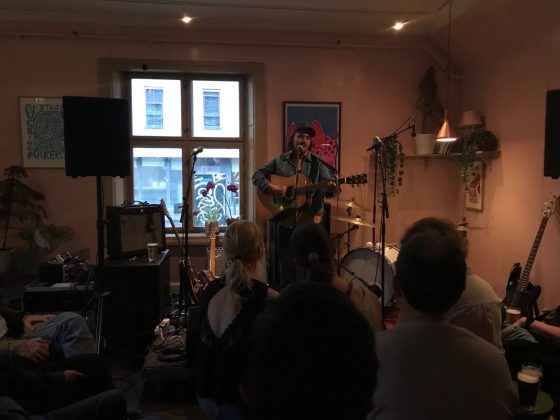
While this doesn’t quite fit any stereotypes about Scandinavia, black metal, or Viking-inspired neo-folk, Norway has a thriving Americana music scene that welcomes and celebrates even lesser-known American folk and country artists. Chris Acker and Dylan Earl are two of these undersung artists, both represented by Nick Shoulders’ record label Gar Hole Records out of Arkansas. This past summer, Acker, Earl, and I all coincidentally ended up in Oslo, Norway, at the same time, where the pair put on an intimate, inspiring, and tightly-packed show for a crowd of about 30 people in a tiny bar with pink walls. They bantered with the audience, backed each other up on a few songs, and even spontaneously formed an unrehearsed superband with the bar owner and their Norwegian opener – and they were damn good. Acker and Earl are both deeply thoughtful musicians who use their power and presence as men on stage to question the status quo of “good ol’ boy” country and stoic male musicality. Their candidness and subversive humor drew the room together that night with a sense of camaraderie, safety, and concentrated joy. – Dana Yewbank
Act Now! A Paperface Zine Benefit Tape for the Palestine Children’s Relief Fund
View this post on Instagram
A harrowing statistic from the UN agency for Palestinian refugees (UNRWA) reports that as of March 2024, the number of children killed in Gaza over a mere five months (October 2023 to February 2024) surpassed the number of children killed in global conflict over the four years prior, combined (2019-2022). As of December 2024, we are a year and two months into the ceaseless genocide being waged against the innocent civilians of Palestine and the horrific violence only continues.
I salute everyone who has waged resistance against genocidal powers, be it contacting senators, galvanizing communities to action, participating in rallies, or, in this instance, artists and musicians who have used their platform as an act of protest. Paperface Zine, a blog that writes and interviews an eclectic mix of underground artists, spearheaded this collection of tunes in an effort to express solidarity with Palestine and raise funds towards the Palestine Children’s Relief Fund. This Benefit Tape is a shining example of how most any skill can be mobilized to support greater communities; creativity and care forever go hand in hand. – Oriana Mack
American Patchwork Quartet, American Patchwork Quartet
American Patchwork Quartet have pieced together one of the best albums this year. Don’t take our word for it: they’ve been nominated for a GRAMMY for Best Folk Album. That’s the moment we want to celebrate. With all due respect to the other nominees, it’s exciting to see a brand new project get recognized so quickly – particularly one that colors outside the lines like APQ. The quartet add a number of global influences to traditional American songs: a guitar solo here, a sitar there, and a fine sprinkling of tabla make the quartet live up to their name. Now, especially, we need statements that American traditions were born of a tapestry of European, African, and Indigenous cultures that continue to be built upon by everyone who chooses to make this place a part of their own quilts. – Rachel Cholst
September 26, 2024 – Asheville, North Carolina’s Music Scene and Hurricane Helene
On the night of September 26, Hurricane Helene ravaged Western North Carolina with unprecedented rainfall and flooding. What resulted was a tight-knit area completely decimated and utterly distraught by the destruction of numerous communities. The current death toll for the state sits at 103, with many others still missing.
Beyond the cultural, economic, and unbelievable physical devastation to Asheville and surrounding towns, the city’s vibrant and world-renowned live music scene was brought to its knees – a radio silence that lasted several weeks, with numerous unknowns lingering for certain storied venues. But, with great resolve and a steadfast attitude of helping your friends and neighbors, the vast music community in Asheville and greater WNC came together with countless benefit concerts and fundraiser album compilations (Caverns of Gold, Cardinals at the Window) — an effort that remains at the forefront of the region’s recovery that will take years, if not decades, to return to normalcy. – Garret K. Woodward
Beyoncé, “Jolene”
Country music is for everyone and there is something fascinating about an album which ends up in the territory between categories. Beyoncé is a great singer, and has been flirting with country for a very long time; she has the chops to sing “Jolene” better than Dolly. So, when she sings that she’s “still a Creole banjee bitch from Louisiana,” she is making a series of arguments: that country exists in response songs; that the other woman should be given the mic; that the landscape mirrors the territory; and that the gatekeepers should be torn down, like the walls of Jericho. – Steacy Easton
February 4, 2024 – Tracy Chapman & Luke Combs, “Fast Car”
Luke Combs released his version of Tracy Chapman’s “Fast Car” in 2023, but it was his performance with Chapman on the 2024 GRAMMY Awards primetime telecast that rocketed the song from country radio back into the mainstream zeitgeist. Where Combs’s recording highlighted the song’s working-class vibes, seeing him perform it alongside its (Black, queer, female) writer gave the song’s legacy even greater heft. “Fast Car” was always a song about women carrying more weight than any single human can; about the urgent, nagging desire to flee toxic cycles; about how fleeting freedom can sometimes feel. For better or worse, all these things became emblematic of 2024. – Kim Ruehl
Rhiannon Giddens
You would be hard-pressed to cite anyone in any genre who had more memorable musical moments in 2024 than the superb vocalist, composer, and instrumentalist Rhiannon Giddens. Her writing brilliance was showcased through the Silkroad Ensemble group and project. Her arrangements of folk songs were part of their landmark American Railroad tour program along with commissioned pieces from jazz artist Cécile McLorin Salvant and film composer Michael Abels, as well as fellow Silkroad artists Wu Man, Layale Chaker, Haruka Fujii, and Maeve Gilchrist. Giddens was featured on banjo and viola on the hit single “Texas Hold ‘Em,” part of Beyoncé’s huge Cowboy Carter LP. Giddens added another GRAMMY nomination for Best American Roots Performance with “The Ballad of Sally Anne” from the excellent compilation My Black Country: The Songs of Alice Randall, too. Hard to believe there’s any ground left to cover for the MacArthur Genius and Pulitzer Prize winner, but Rhiannon Giddens continues to stun and surprise audiences with everything she does. – Ron Wynn
November 14, 2024 – Zachariah Hickman’s Power Outage Party! at Club Passim, Cambridge, MA
Not sure how bassist and music director Zachariah Hickman (Josh Ritter, Ray Lamontagne, Barnstar!) pulls off his many acts of mischief, but the Power Outage Party! shows are the most creative, beautiful, and emotional musical experiences around. Presented in mid-November by Club Passim, the shows featured a collective of musicians (including members of Della Mae and Session Americana) and guests (this year including Taylor Ashton, Mark Erelli, and Kris Delmhorst) performing without any power in the historic 100-seat club in Harvard Square. The band is lit with camping lanterns and tea lights. The audience is shoehorned in so tight (I was nearly sitting on the cello players’ lap) that you can’t help but feel a part of a very special community. Every time I go, I carry the experience and inspiration with me as we all work through the darkest part of the year. – Cindy Howes
February 24, 2024 – Kaia Kater, “In Montreal” at Folk Alliance International
One of my favorite and most memorable musical moments of the year occurred at Folk Alliance International, where Kaia Kater and her band performed tracks from her brand new album, Strange Medicine, at BGS’s private showcase. In a small hotel room with a handful of audience members, Kater began “In Montreal” with her looping, cyclical, trance-like clawhammer banjo groove. I was immediately transported, immediately grounded, gently – and forcibly – brought to the moment. I still experience the same visceral sensation each time I hear this track begin, the old-time banjo hook leaving and rejoining the beat deliciously, sketching out an expansive pocket. This night, in cold Kansas City, Kater was joined by flutist Amber Underwood (AKA Flutienastiness), who was even further transportive and dreamy in her interpretations of the track. It was a transcendent song, a daring banjo-flute dialogue, a mind-blowing mini set, and a perfect harbinger of what Strange Medicine would cure and balm. – Justin Hiltner
June 7-8, 2024 – Laurel Cove Music Festival
The gem of a festival located just north of the Cumberland Gap in Pineville, Kentucky, has fostered several special moments in recent years, but none come close to matching the memories from Wyatt Flores and The Red Clay Strays headlining sets there this past June.
The first came when Flores’ mics were cut off before an encore, leading to his band sitting atop the speakers lining the stage for a crowd sing along to Tyler Childers’ “Lady May” that to this day still gives me goosebumps. But if that wasn’t enough, The Strays topped it the following night when their show turned into an impromptu baptism after people in the crowd began jumping into the shallow pond surrounding the stage during a performance of their hit song, “Don’t Care.”
Both occurrences were pure magic from two of the year’s hottest country-adjacent acts in an intimate setting with only 1,500 people in attendance, showing that even in the age of corporate mega-festivals the best things still do come in small packages. – Matt Wickstrom
February 16, 2024 – The Death of Dexter Romweber
View this post on Instagram
Though he was never top of the pops – or even on the charts at all, either solo or with Flat Duo Jets – wildman proto-rockabilly guitarist John Michael Dexter “Dex” Romweber was still an inspirational icon in the roots-rock world and a key influence on major bands like White Stripes and Black Keys. Romweber was just 57 years old when he died from a cardiac event this year, a shocking event that inspired a worldwide outpouring of tributes that went on for days. Maybe the best of all came from Jack White, who was always wide open about the depth of Romweber’s influence on White Stripes. Writing on Instagram, White proclaimed that Dex “was the type that don’t get 3 course dinners, awards, gold records and statues made of them because they are too real, too much, too strange, too good.” That’s the truth. – David Menconi
July 27, 2024 – Langhorne Slim, “We the People (Fuck the Man)” Live at the BGS Jam at Newport Folk Festival
While putting together the set list for the BGS Late Night Jam, “A Bluegrass Situation,” at Newport Folk Festival back in July, our old pal Langhorne Slim suggested a new tune he had just written. Would the house band be willing to learn it for this special occasion? In the words of our jam host and BGS co-founder Ed Helms, the song was an “instant Newport Classic.”
Slim’s new tune, “We the People (Fuck the Man)” – later released on streaming platforms just before the election – echoed through the Pickens Theatre that Saturday night and immediately got the audience on their feet. Its lyrics are as timeless and rallying as any Guthrie tune, but amidst all the declarations against greed and polarization there’s an optimistic plea in the chorus:
So let us love our neighbors
Protect the land
Look our brother in the eye
When we shake his hand
It’s been this way a long time
It’s hard to understand
The time has come for everyone
We the people, fuck the man
In these tumultuous times, Slim gave us words (and a performance) we shouldn’t soon forget. – Amy Reitnouer Jacobs
Sam Williams & Carter Faith, “‘Til I Can Make It on My Own”
Sam Williams and Carter Faith drape their fringe-laced voices over Tammy Wynnette’s “‘Til I Can Make It on My Own.” While honoring the song’s 1976 roots, the two rising stars spin their own lonesome and delicate performance that seems to transcend time and place. “Lord, you know I’m gonna need a friend,” they sing, trading stunningly confessional lines and background harmony. “‘Til I get used to losing you/ Let me keep on using you, ‘til I can make it on my own.” Through a honeyed, emotionally resonant arrangement, Williams and Faith demonstrate exactly why they’re among the best of today’s new crop of talent. – Bee Delores
Yasmin Williams, Acadia
The guitar is perhaps the most ubiquitous instrument in the modern world, making it even more notable that a picker like Yasmin Williams could still stake out fresh territory on the instrument, finding and championing her own truly original sound and approach. Acadia is a masterwork, breaking still new ground after Williams’ incredibly successful 2021 album, Urban Driftwood. While Acadia isn’t exactly a reinvention for the picker-composer-innovator, it does limitlessly expand the acoustic universe she’s been fleshing out since releasing her debut, Unwind, in 2018. That’s a fairly short runway for a creative to accomplish so much, especially given Williams seemingly treats her guitars as brand new devices each time she picks them up to compose. The results are often bafflingly, jaw-dropping, and dramatic – but always musical and ceaselessly inspiring. – Justin Hiltner
Photo Credit: Tracy Chapman live on the 2024 GRAMMY Awards; Kaia Kater by Janice Reid; Langhorne Slim with Ed Helms at Newport Folk Festival by Nina Westervelt.
